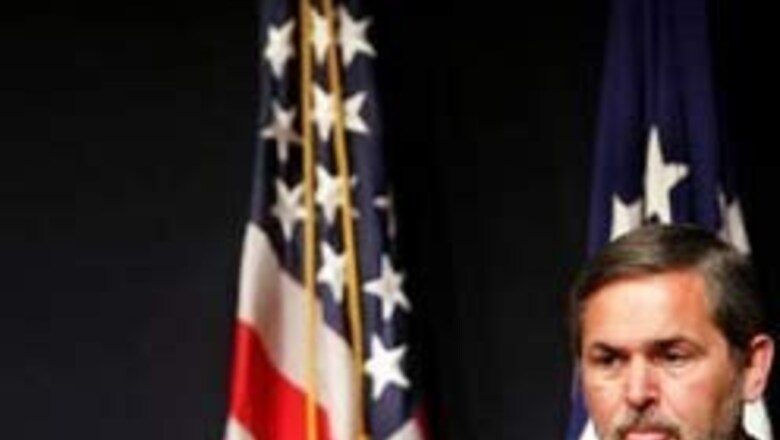
views
Berlin: The United States acknowledged on Monday it was employing a double-standard in its divergent approaches to India and Iran's nuclear programmes, but said its policies were justified by the behaviour of the two countries.
"Is there a double-standard? Yes. There should be," said US Assistant Secretary of State Richard Boucher, when asked whether a civilian nuclear cooperation deal between Washington and New Delhi might send the wrong message to Iran.
Boucher, who is in charge of central and south Asian affairs in the State Department, was in Berlin for discussions with German Foreign Minister Frank-Walter Steinmeier on topics ranging from Afghanistan to India and central Asia.
Back in March, when the US nuclear deal with India was unveiled, Steinmeier said the timing of the agreement was "not helpful" given continuing talks with Iran over its nuclear programme.
The deal would enable India, long treated as a nuclear pariah, to receive American atomic technology and fuel, even though it has not signed the nuclear Non-Proliferation Treaty (NPT) and has already developed atomic bombs.
The United States, supported by Europe, is demanding that Iran, which is a member of the NPT and does not have nuclear weapons, halt key aspects of its nuclear programme because it suspects the country plans to develop atomic bombs.
Iran, which says its nuclear programme is for purely peaceful purposes, concealed its uranium enrichment programme from the nuclear watchdog of the United Nations for 18 years before declaring it in 2003.
"When you have a country that kicks out inspectors, violates its commitments, goes back on its obligations, tears up agreements ... they should be treated differently than a country that has a good record in non-proliferation ... and which wants to bring itself more in alignment with the international community," Boucher said.
He added that he did not believe Iran decided its policies based on how Washington dealt with India. The US House of Representatives gave its initial approval to the India nuclear deal in late July and the Senate is due to vote on it later this month.

















Comments
0 comment